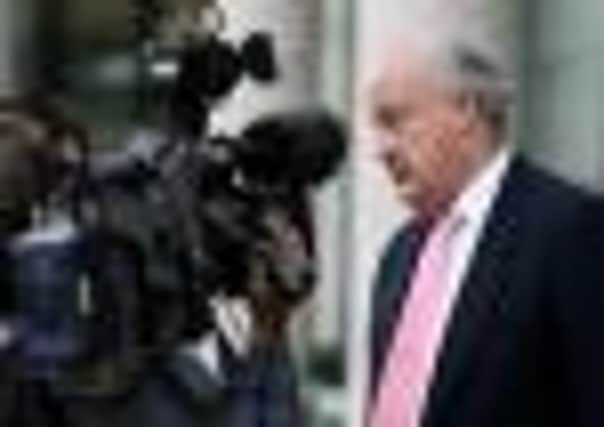Terry Murden: Why we must defend the right to be a failure


An investor group wants similar action taken against Sir Victor Blank, who was chairman of Lloyds Bank at the time of its acquisition of HBOS. As with RBS, the newly-combined group was rescued by the taxpayer.
Extending the forfeiture rule to others fingered for their role in the banking crisis must have left numerous brokers, lawyers, accountants, regulators and fund managers, who have picked up gongs at the palace, wondering if they’ll be asked to send them back.
Advertisement
Hide AdAdvertisement
Hide AdPublic sentiment has moved seamlessly from outrage, fuelled by indignation over greed, to hysteria spurred on by an unsated desire for revenge. The next stop in this thirst for humiliation is for the mob to parade Fred Goodwin naked down the Royal Mile and put his head on a spike.
The head of the civil service is expected to review Blank’s knighthood, but surely there will be no further action. No crimes were committed, no malice was intended. Blank received his knighthood in 1999, before he joined Lloyds.
The business lobby is concerned that the campaign against the bankers is turning into an anti-business and anti-wealth crusade that will damage Britain’s reputation for enterprise. All manner of people who simply hate the honours system have jumped on the bandwagon. As such, business leaders are rising up in defence of those who were rewarded for what they achieved and, more importantly, for the right to fail without fear of retribution.
Making the right McColl is more than a knack
AT a time when the row over access to finance remains a problem, it is cheering to note that venture funds are having little difficulty attracting investors.
Scottish Equity Partners has lured money from Europe, where it has developed a reputation for shrewd investments and excellent returns.
Clyde Blowers Capital, as we report today, has seen its third fund over-subscribed, thanks particularly to investor enthusiasm in America for Scottish entrepreneur Jim McColl, whose track record in over-achievement has continued throughout the downturn.
McColl has a knack for identifying unglamorous but lucrative opportunities and his fund is geared towards the engineering expertise that his group can offer. Any number of financiers will challenge his assertion that the “old models” of funding, presumably the non-specialist funder, are over. But it’s rare that he makes a wrong call.
Bank finally finding the customer’s always right
THE commitment by Lloyds Banking Group boss Antonio Horta-Osorio to maintaining the branch network echoes a similar policy held by Royal Bank of Scotland, particularly the pledge to keep a branch open where it is the last remaining in a locality.
Advertisement
Hide AdAdvertisement
Hide AdIt represents something of a turnaround in banking which for years closed branches in favour of pushing customers towards online alternatives, call centres or merely to rationalise their number.
There seems to be realisation that face-to-face relationships with customers actually matter. It may be too early to call time on the call centres, but everyone has a story of frustration over their dealings with them.
Lloyds was among those banks which exported customer service overseas. The idea was for customers to get round-the-clock service, direct and personal. They were actively encouraged to use call centres and discouraged from using the branches. There were predictions that all branches would eventually close.
Horta-Osorio is now talking about the customer being at the heart of everything it does.
I don’t remember anyone asking the customers if they wanted the branches to close and for customer service to be handled from India. In fact the bank bowed to customer pressure in 2007 to close its Indian call centres, just three years after they were opened.
If it had put the customer at the heart of its plans at the time it would have saved itself a lot of trouble and expense.